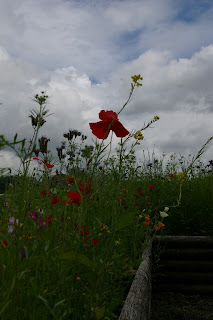I bought "The Other Side" by Kate Granger (http://theothersidestory.co.uk/) last week and read
it in two gulps. It is a compelling read and it made me reflect on why I found
it so gripping. I think it is such a
visceral and honest account of the patient experience that it is like you are
there beside Kate. I felt moved to tears on quite a few occasions and also
shouted to myself about the issues that resonated in other areas of health
care. Cancer is the hook – life limiting and perilous – the treatment
debilitating and the trajectory so uncertain. Knowing the ending and Kate’s
current dilemma made it even more of an emotional roller coaster. My main
thought was whether other life limiting illnesses create equally compelling
narratives and whether the public and health care professionals would be as interested
in an account of diabetes clinic visits, trips to neurology for a differential
diagnosis of vague and diffuse symptoms. I am so grateful (if that sounds
patronising then it is not meant to be) for Kate Granger for being so clear
minded that she wrote her story during sleepless nights and had the courage to
put it out in the public domain. I have been interested in the stories behind
people’s experiences of disease and its treatment for over 20 years. That's quite a scary statement - as I realised the other day that it is 20 years since I started my MSc in Health Research - the beginning of my research interests and my resulting love/hate relationship with all things scholarly...
My career as a diabetes specialist nurse (DSN) didn’t last very
long but it was, I hope, person-centred. I didn’t last as a DSN because I got frustrated
by the profession centred approach and the focus on clinical measurements and
the organisation of the clinic rather than a focus on what mattered for the
person with diabetes. I used to get very irritated with the powerful decision
makers in diabetes care. I started my PhD research in response to my disquiet
about what was going on and wanted to find out what people talked about when
they were given an opportunity to “tell their story”. Each interview started like a stopper had been taken off a bottle of
fizzy drink – they gushed forth with the beginning of their life with diabetes(diagnosis),
the trials and tribulations ( follow up clinics and annual reviews) and then
the current experience. I didn’t have to ask much or prompt– the stories just kept on
coming – back in 1999 after I had these stories as my data I couldn’t find a
way of keeping the experiences whole.
Narrative research in nursing was very new and even service user
views were still quite novel and no one seemed able to help me find a way of
presenting my findings in a way that honoured
the diversity and complexity of each person’s life with diabetes and their
encounters with health care professionals. The frustration of hospital parking,
the irritation of inconsistent staffing at clinics, the anxiety of retinal
screening, the ongoing exasperation of a total oversight of the emotional and psychological
aspects of managing a life changing, demanding and intrusive condition. All the
people I interviewed thanked me for letting them tell their story – a fact that
still makes me feel guilty that I didn’t get my PhD. Maybe this blog can help
with that as more people will read this than would have read any thesis I might
have produced.
I guess my thoughts are that many people experiencing ongoing
and demanding health care deserve to have their stories heard and that is one
of my areas of learning since I joined Twitter. I follow quite a few people with
diabetes (mostly type 1) and a lot of what I read makes me very cross as it
seems like a lot of what I learned during my research by listening to people
with diabetes has yet to filter into diabetes care in any obvious way.
It happens a lot in my writing workshops – patients and practitioners
have a different conversation – not disease or symptom focussed but person and
life focussed… this has to be the better way of informing care needs. How can
we make that happen??
Below is one of the poems I wrote in response to the stories people
told me – this was the beginning of my need to write poetry. There are a quite
few of these I might put them here for you to read..
Beginnings
Rapid onset
Gradual change
Everyone is differentNo two are the same
Playing in the woods
Sitting in the car
Unexpected symptoms
A slight change in the view
Going in for something else
Didn’t know I had it
Had an itch that wouldn’t go away
Doctor said it was my age
didn't know that was part of the deal!
Thought I was thirsty, peeing a lot
Thought it was my age
Didn't bargain for this!














